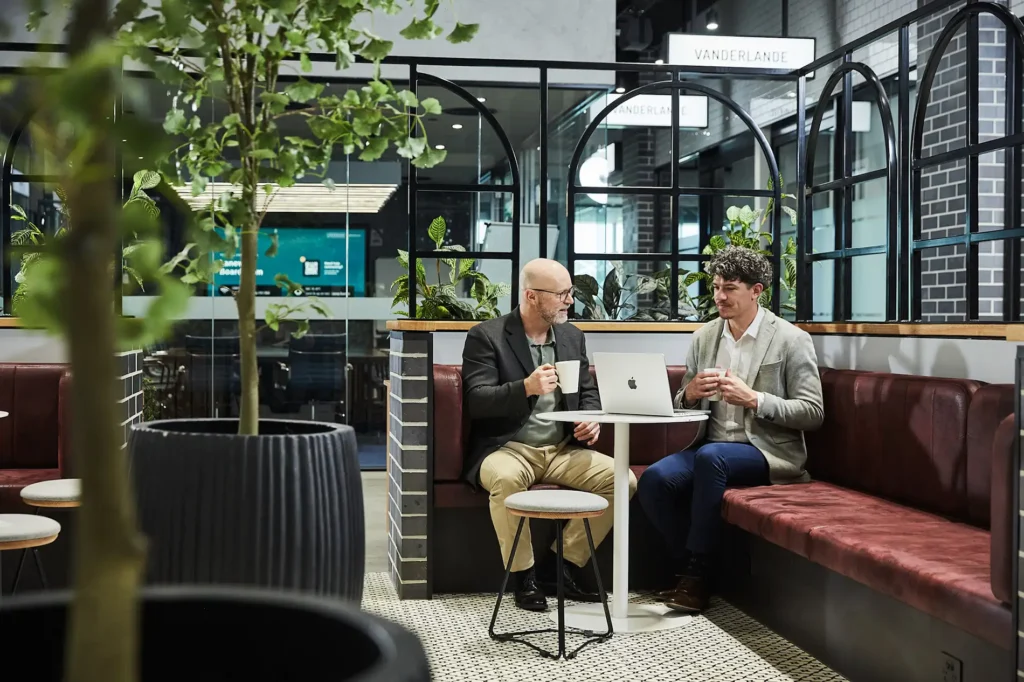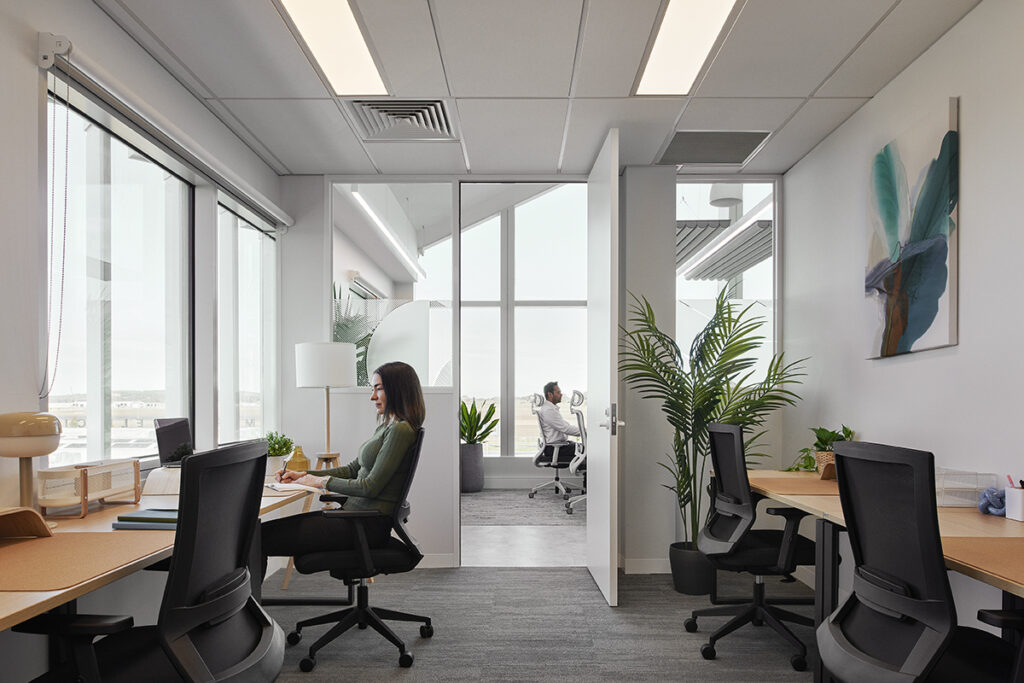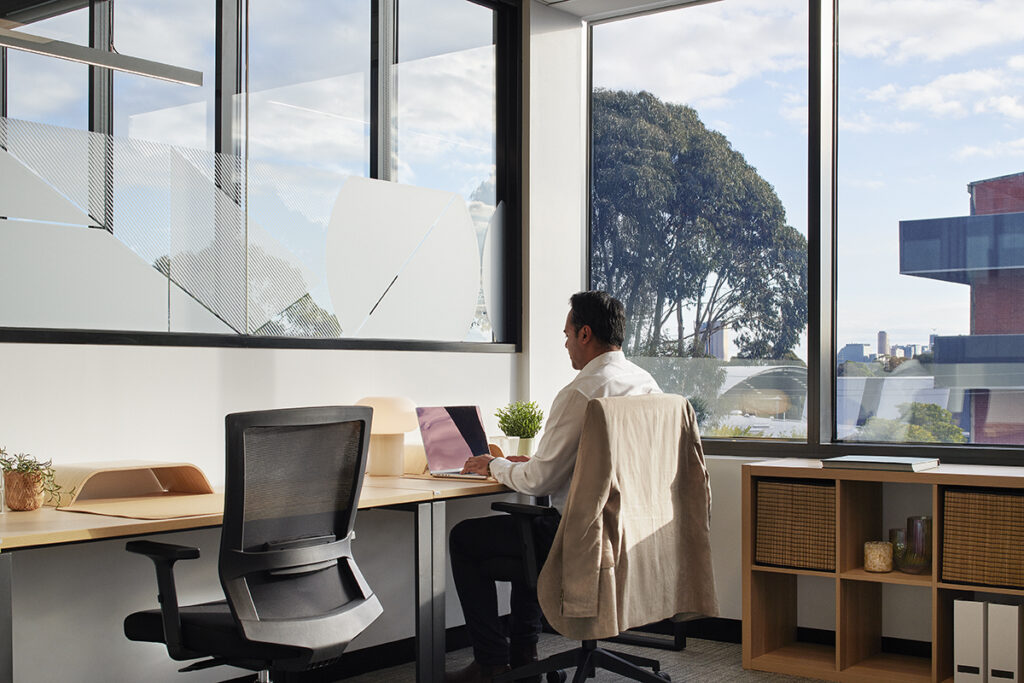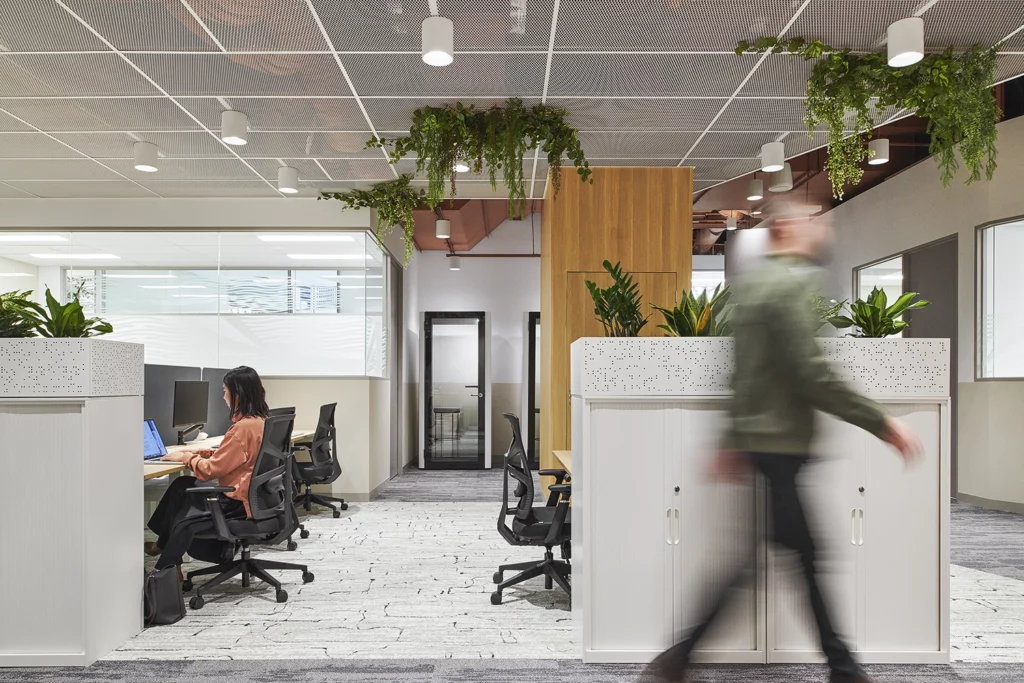These concerns are valid and something people often ask when visiting a Waterman Workspace for the first time. But they’re also becoming more reflective of a shift in how we think about workspace and work rhythms today. Businesses are increasingly re-evaluating what they actually need from an office and many are finding that sharing space doesn’t mean giving anything up. In fact, it can open the door to more opportunities, decreased costs and more connected ways of working.
At Waterman, we’ve seen firsthand how shared environments can be the launchpad for growth, collaboration, and serious cost savings without compromising on professionalism or company culture. We’ve tried to breakdown what it’s really like to be in a shared environment, and why more businesses are choosing flexible workspace as a strategic move.

A Smarter Way to Share: Why Shared Spaces Make Business Sense
One of the most immediate benefits of a shared environment is cost efficiency. Instead of footing the bill for everything, from fitting out meeting rooms to breakout spaces, high-speed internet, kitchen amenities and the rest, you’re sharing the financial cost with other businesses.
That means you get access to more, while spending less. At Waterman, shared resources are thoughtfully designed to feel premium and professional. You’re not just renting a desk you’re getting access to high-end meeting rooms, modern lounges, high-speed, enterprise-grade internet, reception services, and onsite support staff.
And then there’s the less obvious benefit, but one that can prove extremely beneficial: proximity to potential collaborators, clients, and connectors. You never know who you might meet in the kitchen at drinks or bump into on your way to a meeting. The diversity of industries and professionals in a shared space can lead to unexpected partnerships, new clients, or even just a fresh perspective when you need it most. We’ve found that many business owners face similar challenges along the business journey and being able to chat with like-minded people and share ideas can go a long way in helping your business go further.
And perhaps one of the most important factors: flexibility. Whether you’re a lean startup or a growing team, your workspace needs can change quickly. Shared environments allow you to scale up, scale down, or shift locations without the drama of locked in long-term commercial leases or rebuilding and fitting out offices from scratch.

The Evolution of Work: Why Traditional Offices Are Being Left Behind
This shift in thinking about the traditional workplace isn’t new, however it was significantly accelerated by the pandemic and economic uncertainty of the last few years. Nearly 60% of businesses have reconsidered their real estate strategy since 2020, with flexibility emerging as the primary driver of change.¹ Why commit to a 5-year lease when the future of work is transforming monthly?
Traditional offices come with hidden costs beyond the lease: maintenance, utilities, security, technological infrastructure, and furnishings. More significantly, they lock businesses into rigid arrangements precisely when adaptability has become a competitive advantage.
Consider these insights from recent workplace studies:
- The average utilization rate of dedicated office space hovers around 60% on a typical workday²
- Meeting rooms sit empty approximately 70% of the time³
- Nearly 40% of employees report that traditional office environments hinder their productivity⁴
What About Privacy, Focus, and Culture?
One of the most common criticisms and concerns about shared workspaces is the noise and activity distractions that can affect your productivity or privacy when you have confidential work.
At Waterman, our spaces are designed to give you the best of both worlds. Private offices, bookable meeting rooms and day-offices, and quiet work zones offer all the privacy and variation of space you may need. Whether it’s a sensitive client call or deep strategy session, there’s always a space that suits the task.
And if you’re worried about distractions we’ve been intentional with layout design and acoustics to support focused work. Our team also play a hands-on role in making sure the space flows well, so you’re not constantly interrupted by noise or unnecessary distractions.
And when it comes to culture, we know how important it is to feel like your business has a unique home. That’s why our private office suites can be styled to reflect your business. With your own signage and layout that our in-house design team can assist in the planning and delivery of. Many members tell us they get the best of both worlds, a dedicated-feeling office within a vibrant, professional community.

Shared Doesn’t Mean Compromised – It Means Strategic
In today’s landscape, where hybrid work, budget awareness, and agility are more important than ever, flexible workspaces aren’t a compromise, they’re a strategy.
They give businesses the ability to move quickly, reduce unnecessary overheads, and stay connected to a wider ecosystem of professionals and ideas. Whether you’re looking to energise your team, test a new geographic location for your business, or simply get more from your space without the burden of traditional leasing, flexible workspaces are a powerful option.
At Waterman, we’ve created spaces that are more than just somewhere to work, they’re places to grow, connect, and thrive in an established business community with a network of centres you can access and tap in to.
References
¹ CBRE Global Workplace Solutions, “The Future of Work Survey,” 2023 ² JLL Research, “Office Utilization Index,” 2024 ³ Steelcase Workspace Futures, “Meeting Room Efficiency Report,” 2023 ⁴ Gensler Research Institute, “U.S. Workplace Survey,” 2024
